Refugee and migrant health in the COVID-19 response
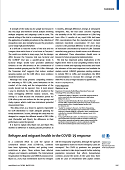 Policy documents
Policy documents
THE LANCET, Comment: Vol. 395, issue 10232, p1237-1239, April 18, 2020

 Policy documents
Policy documents
THE LANCET, Comment: Vol. 395, issue 10232, p1237-1239, April 18, 2020
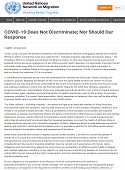 Policy documents
Policy documents
Only with an inclusive approach, truly leaving no-one behind, will we all be able to overcome this global crisis of unprecedented magnitude and proportions.
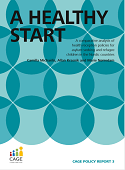 Policy documents
Policy documents
This comparative overview examined policies and policy developments regarding the health reception of asylum-seeking and refugee children in Denmark, Finland, Norway and Sweden during 1980 to 2018. In all four countries, health reception initiatives mainly focus on infectious disease control and acute health-care needs, with less consideration of mental health.
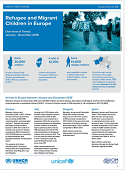 Policy documents
Policy documents
Factsheets are produced on a quarterly basis to provide up-to-date information on refugee and migrant children.
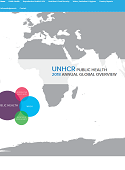 Policy documents
Policy documents
UNHCR aims to ensure that all refugees are able to fulfil their rights to access essential public health services. Its public health programmes are guided by the Global Strategy for Public Health 2014–2018, which works to ensure that all refugees are able to enjoy their rights to access four broad subsectors of public health services: (i) primary and secondary health care; (ii) HIV prevention, protection, care and treatment, and reproductive health services; (iii) food security and nutrition; and (iv) water, sanitation and hygiene (WASH) services.
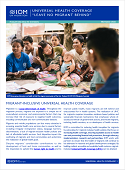 Policy documents
Policy documents
Migration is a social determinant of health. Throughout the migration process, migrants are exposed to a unique set of sociocultural, economic and environmental factors that may increase their risk of exposure to negative health outcomes, including communicable and noncommunicable diseases. Obstacles in accessing essential health care services include irregular immigration status, language barriers, discrimination, a lack of migrant-inclusive health policies and lack of affordable health services. Such disparities impact the well-being of migrant and host communities and undermine the realization of global health goals.
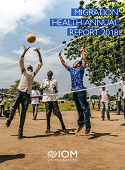 Policy documents
Policy documents
The report provides a snapshot of IOM's health activities in 2018.
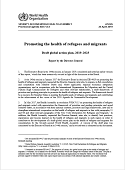 Policy documents
Policy documents
WHO global action plan outlining priorities and guiding principles to promote the health of refugees and migrants.
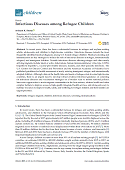 Policy documents
Policy documents
Infectious Diseases among Refugee Children (2019)
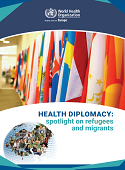 Policy documents
Policy documents
Health diplomacy: spotlight on refugees and migrants
Healthcare access for refugees in Greece: Challenges and opportunities (2019)
Health needs and access to health care: the case of Syrian refugees in Turkey (2019)
Medical care for migrant children in Europe: a practical recommendation for first and follow-up appointments (2019)
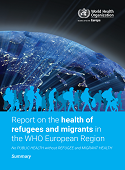 Policy documents
Policy documents
Report on the health of refugees and migrants in the WHO European Region: no public health without refugee and migrant health – Summary
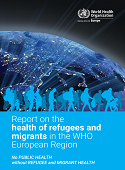 Policy documents
Policy documents
Report on the health of refugees and migrants in the WHO European Region: no public health without refugee and migrant health (2018)
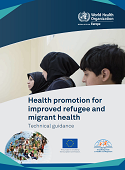 Policy documents
Policy documents
Health promotion for improved refugee and migrant health (2018)
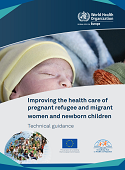 Policy documents
Policy documents
Improving the health care of pregnant refugee and migrant women and newborn children (2018)
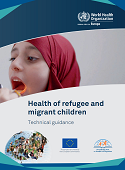 Policy documents
Policy documents
Health of refugee and migrant children (2018)
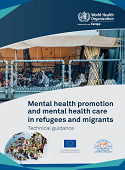 Policy documents
Policy documents
Mental health promotion and mental health care in refugees and migrants (2018)
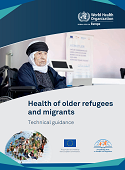 Policy documents
Policy documents
Health of older refugees and migrants (2018)
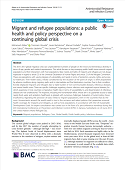 Policy documents
Policy documents
Migrant and refugee populations: a public health and policy perspective on a continuing global crisis (2018)
In alignment with World Health Assembly resolution 70.15, WHO made an online global call from August 2017 to January 2018 for contributions on evidence-based information, best practices, experiences and lessons learned in addressing the health needs of refugees and migrants.
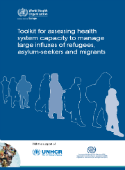 Policy documents
Policy documents
Toolkit for assessing health system capacity to manage large influxes of refugees, asylum-seekers and migrants (2016)
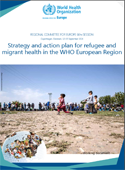 Policy documents
Policy documents
Strategy and action plan for refugee and migrant health in the WHO European Region (2016)
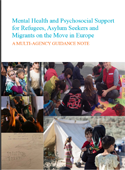 Policy documents
Policy documents
Mental Health and Psychosocial Support for Refugees, Asylum Seekers and Migrants on the Move in Europe. A multi-agency guidance note (2015)